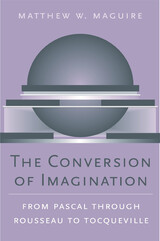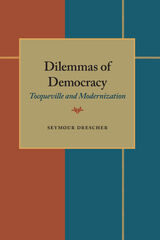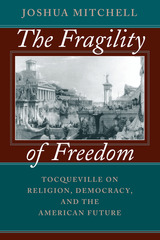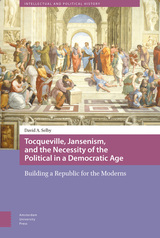
From romanticism through postmodernism, the imagination has become an indispensable reference point for thinking about the self, culture, philosophy, and politics. How has imagination so thoroughly influenced our understanding of experience and its possibilities? In a bold reinterpretation of a crucial development in modern European intellectual history, Matthew W. Maguire uncovers a history of French thought that casts the imagination as a dominant faculty in our experience of the world.
Pascal, turning Augustinianism inside out, radically expanded the powers of imagination implicit in the work of Montaigne and Descartes, and made imagination the determinative faculty of everything from meaning and beauty to political legitimacy and happiness. Maguire traces the ways that others, including Montesquieu and Voltaire, developed and assigned limits to this exalted imagination. But it is above all Rousseau's diverse writings that engage with an expansive imagination. And in the writings of Rousseau's careful readers, particularly Alexis de Tocqueville, imagination is increasingly understood as the medium for an ineffable human freedom against the constrictive power of a new order in politics and culture.
Original and thought-provoking, The Conversion of Imagination will interest a range of readers across intellectual history, political theory, literary and cultural studies, and the history of religious thought.


Focusing on Democracy in America, The Fragility of Freedom examines Tocqueville's key works and argues that his analysis of democracy is ultimately rooted in an Augustinian view of human psychology. As much a work of political philosophy as of religion, The Fragility of Freedom argues for the importance of a political theology that recognizes moderation.
"An intelligent and sharply drawn portrait of a conservative Toqueville."—Anne C. Rose, Journal of American History
"I recommend this book as one of a very few to approach seriously the sources of Tocqueville's intellectual and moral greatness."—Peter Augustine Lawler, Journal of Politics
"Mitchell ably places Democracy in America in the long conversation of Western political and theological thought."—Wilfred M. McClay, First Things
"Learned and thought-provoking."—Peter Berkowitz, New Republic


This study envisions Tocqueville as a political man, and a politically committed one, rather than as an omniscient and solitary prophet of the age of the masses. A historical account of one of the essential liberals of the nineteenth century cannot ignore the fact that Tocqueville's views of both the present and the future were formulated in terms of the outlook of his own generation and class.
The British Isles were the source of some of Tocqueville's most significant insights, especially of the historic connection between the rise of democracy and the extension of bureaucratic centralization. They furnished him with two examples from which he eventually drew a theory of the evolution of aristocracies. They gave him a comparative basis for a theory of the relation of ideas to social change, of the causes of and antidotes to revolutions. His ideas on institutional and economic reform and on the ingredients of a great foreign policy bore the English trademark. If at times he protested against a lifeless imitation of an insolent rival, more often than not what the rival was doing became the basis for his own solutions to French problems.
Finally, England provided Tocqueville with a refuge from the intellectual and political isolation of his last years. He found there, not only the consensus which was necessary for him to grasp his own reality and purpose, but the opportunity to continue to influence the course of events, however diminished his range. At the end of his life England was his second homeland, and assumed the prime place in his vision of the history of human liberty.
A discussion of Tocqueville's intellectual relationship with his lifelong friend, Gustave de Beaumont, is indispensable to this study. Tocqueville brought to their common fund of ideas a wealth of insight which justly claims greater scholarly attention, but it was Beaumont who, after their journey to England and Ireland in 1835, attempted an extended study of the British constitution, while the ideas of his traveling companion remained in undigested notes. Despite the fact that the inseparability of their ideas on democracy was recognized a generation ago, the unity of their careers and ideas after the appearance of their books on America here receives due analysis for the first time.

Why did the French Revolution lead to the crimes of the Terror, whereas the American Revolution brought forth a liberal democracy? Alexis de Tocqueville spent a lifetime trying to understand the paradox. This first book on the genesis of Tocqueville’s Democracy in America considers his two main themes of democracy and revolution in the light of his own early political activities and his subsequent studies of the past, and thereby makes a valuable contribution to intellectual history.
In tracing the evolution of Tocqueville’s work, Jean-Claude Lamberti reveals Tocqueville’s enormous intellectual debt to Montesquieu; skillfully analyzes all that separates Tocqueville from the liberal French school, particularly Benjamin Constant and François Guizot; shows that Tocqueville believed that the only means of preventing new revolutions (which he abhorred) was to increase political freedom, especially that of association; sketches the difference between Tocqueville and counter-revolutionaries on the question of individualism, which Tocqueville wished to correct but not annihilate. Never before have historians been able to place Tocqueville so securely in the genealogy of French liberalism. This new work demonstrates his relevance to the world today.

READERS
Browse our collection.
PUBLISHERS
See BiblioVault's publisher services.
STUDENT SERVICES
Files for college accessibility offices.
UChicago Accessibility Resources
home | accessibility | search | about | contact us
BiblioVault ® 2001 - 2024
The University of Chicago Press









